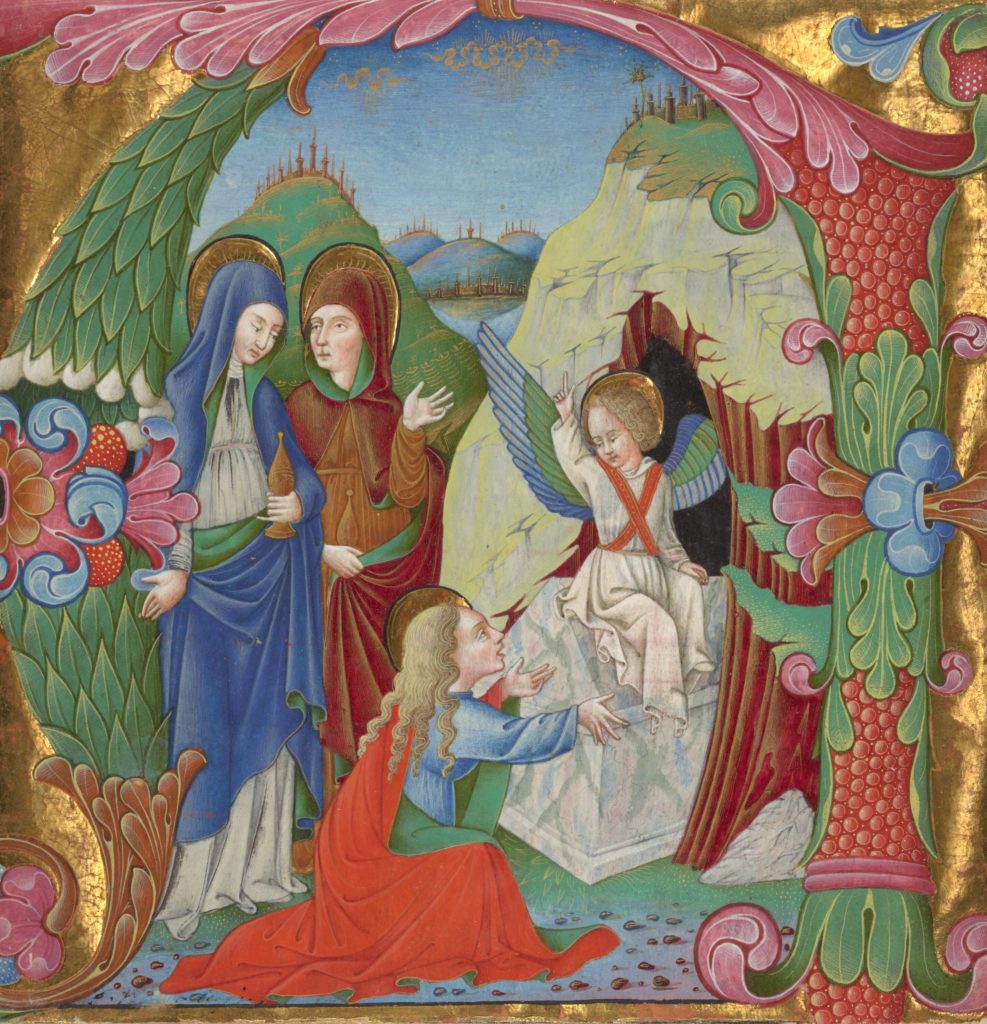Now, on Easter, is the cause of a Christian’s joy made manifest — the resurrection of Our Lord!
If Jesus Christ really defeated death by rising from a dank tomb, as he promised, then it is possible for Christians to live in steady joy. Even during the recurring seasons of sadness and perplexity, the resurrection miracle preserves room in our hearts for gladness, or at least the glow of its near promise.
But the resurrection of Christ also has something special to say to the cynicism that seems to have taken hold of our society.
Modern secular man’s great despair, whose fruits we see all around us in the dysfunction and hopelessness of too many people in our society, may be attributed to his disbelief in miracles. This man is taught from childhood to consider the natural, material world the entire sum of existence. When his life is just a series of natural occurrences, he is unable to look higher and think about life very seriously.
This man is unable to embrace a supernatural outlook, in which the natural world is only a part of an open system, a system in which things operate by natural law most of the time but are interrupted and redirected by the hand of God. These interruptions are called miracles. And the greatest miracle is the empty tomb in the garden of Golgotha.
We can’t blame people for not believing in miracles. Even the Christian establishment and its teachers have, for some time, been poo-pooing them, perhaps maintaining a belief in the Resurrection or the True Presence but putting forth psychological/material explanations for “minor” phenomena. There are those, for example, who give sermons about the Gospel accounts of Jesus feeding 5,000 people that slide right past the simple divine act of multiplication, suggesting instead that the only miracle was that the Sermon on the Mount inspired a kind of radical sharing.

This downgrading of belief has had a pernicious effect. The gift of Christianity, with all the firm happiness and peace that it implies, calls us to embrace the whole gamut of Christian beliefs. And God, especially in the person of Jesus, performed miracle upon miracle, astounding and amazing the people who witnessed them.
They were not, as some have postulated, ignorant and superstitious, ready to believe where educated modern man is skeptical. They knew that lepers didn’t recover, and that Lazarus had been long enough in the tomb to warn there would be a stench of rotting flesh when the rock was rolled back. Perhaps, in fact, they were more in touch with the natural world and its laws than we are, removed as we are by modern conveniences and man-made elaborations.
But these people believed because they saw — and then they soon forgot. The palm-laying, adoring crowds of Jesus’ entry into Jerusalem are very quickly transformed into the jeering, jabbering throngs along the uphill Via Dolorosa. Having seen him make the leper’s skin as pure as that of an infant and seen him return a living son to the widow of Nain, still they turn on him and the joy of having seen the mercy of God. On the day of his passion the moments of compassion are so rare that they are described in loving detail: Veronica’s tender wiping of dripping sweat and blood, the crying of a group of women of Jerusalem.
It’s not as though we are not surrounded by miracles, confronted by miracles, bathed in miracles. We are just jaded and cynical, tired and grumpy, and we soon forget. Jesus turned water into wine at Cana, and we say, well, I’d sure like to see that! But, as St. Augustine pointed out, “We take for granted the slow miracle whereby water in the irrigation of a vineyard becomes wine. It is only when Christ turns water into wine, in a quick motion, as it were, that we stand amazed.” Yes, the water on God’s good earth turns into wine, and the breast milk turns into tender flesh on your beloved infant, and the ordinary love of a man and his wife generates an immortal soul.
The empty tomb in the garden of Golgotha. The defeat of the great dread of our lives, the demolishing of the giant obstacle between despair and joy is the miracle of miracles. It is God with one decisive, majestic hand turning the whole sad saga of each human life into a tale of romance and adventure, in which the happy ending is assured.
The cause of our joy, indeed.

